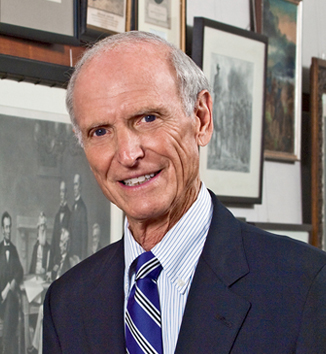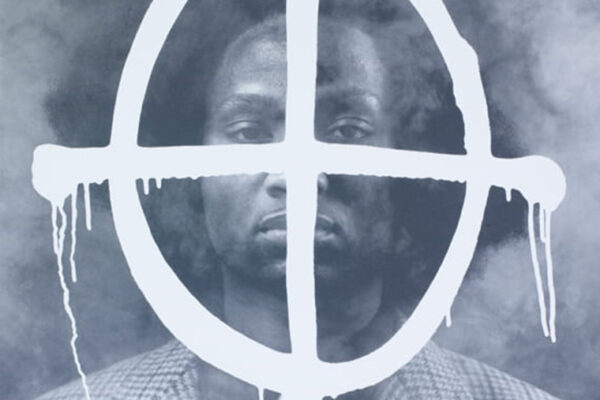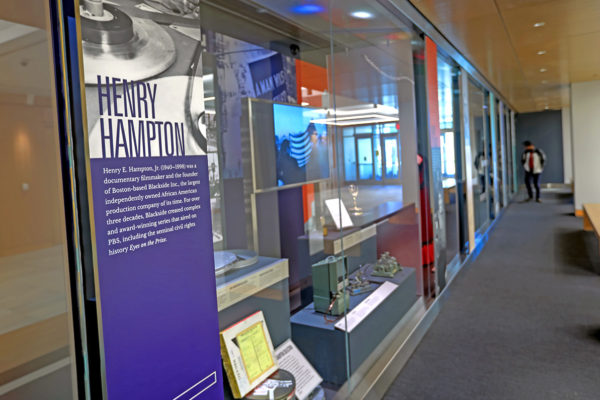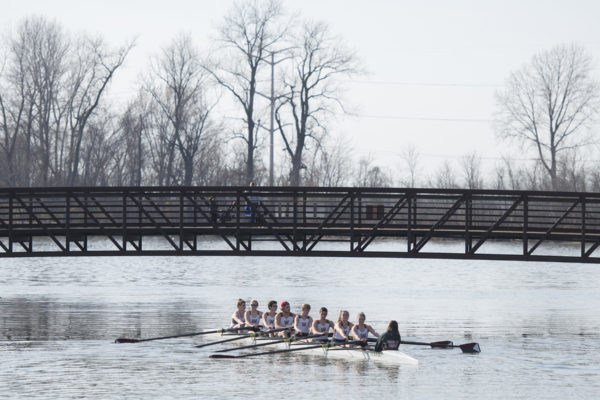
When you visit the Department of Special Collections at Olin Library, chances are you will run into James Schiele, AB ’52, MLA ’85. He can be found thumbing through the pages of rare books. Or perhaps you will find him presenting the James E. and Joan Singer Schiele Print Collection to an eager audience. Schiele has a passion for 19th-century American history and for his alma mater.
“Washington University provides a wonderfully diverse and enlightened atmosphere for students,” Schiele says. “I am grateful to be an ongoing part of the university, which is why I spend a lot of time on campus.”
As a St. Louis native, he is not the first member of his family to spend time at the university. His grandfather was a member of the first graduating class of the former School of Dental Medicine in 1897. His mother completed a Bachelor of Arts in 1922, and his brother graduated from the School of Medicine in 1949. In keeping with family tradition, Schiele has earned two degrees from Arts & Sciences and is currently pursuing his second master’s in American culture studies.
Schiele spent his career building on another family tradition. He served more than three decades leading his family’s company, St. Louis Screw & Bolt.
The family business
When he was 14 years old, Schiele began working at his family’s appliance distributor company, Artophone Corporation. He continued working there while an undergraduate student at Washington University. After earning his Bachelor of Arts in history in 1952, Schiele enlisted in the U.S. Air Force and served one year in the Far East, primarily in Korea as a RB-26 navigator.
In 1956, Schiele returned to St. Louis and married Joan Singer. Shortly after, the Schiele family closed Artophone. (Ironically, Artophone’s last location was in the building that now makes up the university’s North Campus.) The family then acquired the St. Louis Screw & Bolt Company in 1957. Schiele was named president eight years later.
Under his leadership, the company became one of the nation’s leading manufacturers of industrial fasteners, concentrating in heavy construction — buildings, bridges, power plants and factories. The company expanded into the international market, which eventually made up 20 percent of the company’s sales.
Schiele also served as chairman of the Industrial Fasteners Institute and testified before the International Trade Commission and the Department of Commerce on various issues. His keen interest in political science led him back to the university. He earned his Master of Liberal Arts in 1985, completing his master’s thesis, “U.S. Industrial Base Erosion.”
In 1999, Schiele, as chairman and chief executive officer, sold St. Louis Screw & Bolt Company. He remains a consultant.
Collection and recollection
At the age of 5, Schiele discovered his true passion while reviewing an illustrated American history book. Two images — one of the Battle of Gettysburg and the other of Custer’s last stand — struck a chord with him.
Schiele bought his first print in 1956. It depicted the Civil War departure of the 7th Regiment, New York State Militia in April 1861. Over the next five decades, he acquired many prints, some rare, of the abolition movement, the Civil War and Reconstruction.
In 2006, Schiele donated his collection to the Washington University Libraries’ Special Collections. Today, the print collection comprises about 300 prints and includes 19th-century American lithographs, engravings, chromolithographs and sketches. It features 36 Kurz & Allison chromolithograph prints of the Civil War. The only other known complete collection of these prints is housed at the Chicago History Museum.
“The collection tells a story of our political and cultural history in the United States from 1848 to 1876,” Schiele says. “It is not just a lot of pictures thrown together. The collection makes the story easy to follow, and I think the Libraries’ Special Collections provides the best home for it.”
The Schieles also established a library endowment to help maintain and expand the Schiele Print Collection. In addition, they have donated about 50 books on
19th-century history.
“Jim’s personal passion for collecting has translated into a major addition to the Libraries’ cultural studies, history and illustration resources,” says Shirley Baker, vice chancellor for scholarly resources and dean of University Libraries. “He is an ambassador for us, spreading knowledge of the resources and encouraging use of his and other collections. Our faculty and students are avid users of the prints.” (To view prints from the collection, see slideshow below.)
The spirit of giving
“The collection tells a story of our political and cultural history in the United States from 1848 to 1876,” Schiele says. “It is not just a lot of pictures thrown together. The collection makes the story easy to follow, and I think the Libraries’ Special Collections provides the best home for it.”
Schiele has not limited his generosity to University Libraries. He is a Life Fellow of the William Greenleaf Eliot Society and a Brookings Partner. Over the years, annual gifts from him and his wife have impacted many programs, including the Weidenbaum Center on the Economy, Government, and Public Policy. They are also steadfast scholarship supporters and established an endowed scholarship in Arts & Sciences in 2003.
“At Washington University, there has always been this spirit of not just listening but of being receptive to what people think,” Schiele explains. “There is also a spirit of giving that asks, ‘What can we do for others?’ I want to be supportive of programs that I think are essential.”
Schiele shows his support through his various leadership positions. He is the Eliot Society chair for the Weidenbaum Center, a member of the Athletic Department’s W Club Executive Committee, and a member of the Strategic Planning Committee for the Center for New Institutional Social Sciences in Arts & Sciences.
He is also involved in the International Advisory Council for Asia and the University Libraries National Council. In addition, he is a former member of the Alumni Board of Governors and has participated in his undergraduate Reunions over the years.
The university has recognized Schiele for his dedication. University Libraries awarded him the 2009 Dean’s Medal. He received the Founders Day Distinguished Alumni Award in 2006 and the Lifetime Achievement Award from the Weidenbaum Center in 2000.
“Jim is an outstanding citizen of the Washington University community,” says Murray Weidenbaum, honorary chairman of the Weidenbaum Center and the Edward Mallinckrodt Distinguished University Professor. “His enthusiasm is contagious, and his generosity is an inspiration. He is a true friend of the university.”
Donna Robinson is associate director of Development Communications.


